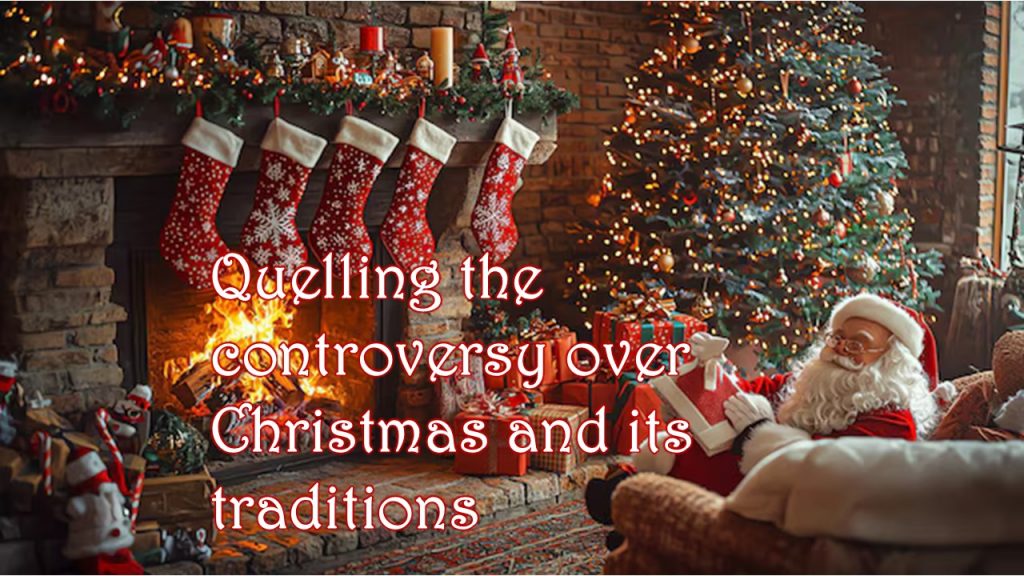
Let’s Quell the controversy over Christmas and its traditions.
Every Christmas season many of us are confronted with various notions about the origins of Christmas and many cherished Christmas traditions. But what can we learn from the original writers of history itself about these controversial ideas?
It’s been called “the most wonderful time of the year.” Christmas for most of us has enjoyed a long history of traditions that make the heart of the winter season a rich time of festive celebrations.
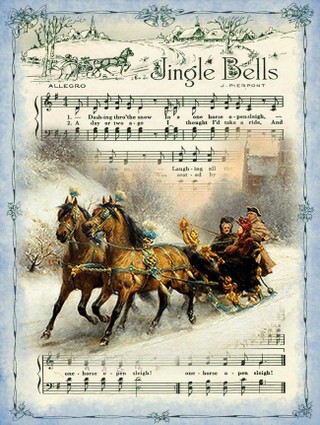
For many of us, growing up in America in the late 20th Century, our memories from childhood include the happy songs of Jingle Bells, Deck the Halls with boughs of holly, and “I’m dreaming of a white Christmas.” There’s nothing wrong with any of that. When I was a child, singing Christmas songs like Silent Night and Joy to the World … around the piano with my grandmother… well, nothing could be more delightful to enthusiastic, ever-optimistic young children. Although Santa, for my generation, played a fairly significant part of the wide array of Christmas traditions… there was never the slightest thought that “the night before Christmas and all through the house…” was ever anything more than an amusing way of celebrating the ‘rest of the story’ that was more fully expressed when we sang “Joy to the world, the Lord is come” and “O Come all ye faithful, joyful and triumphant.” In fact, singing Christmas carols for our neighbors on cold winter nights in December will always be a treasured memory from childhood, through adolescence, and through college days as a young adult. We never lost sight of the real meaning of Christmas. And no one, that I can remember, ever behaved like a Scrooge or a Grinch that stole the heartbeat of Christmas, which was always about the birth of Jesus, 2,000 years ago.
Many Christians today have lamented the fact that modern commercialized society has made Christmas into a highly secular time of year.
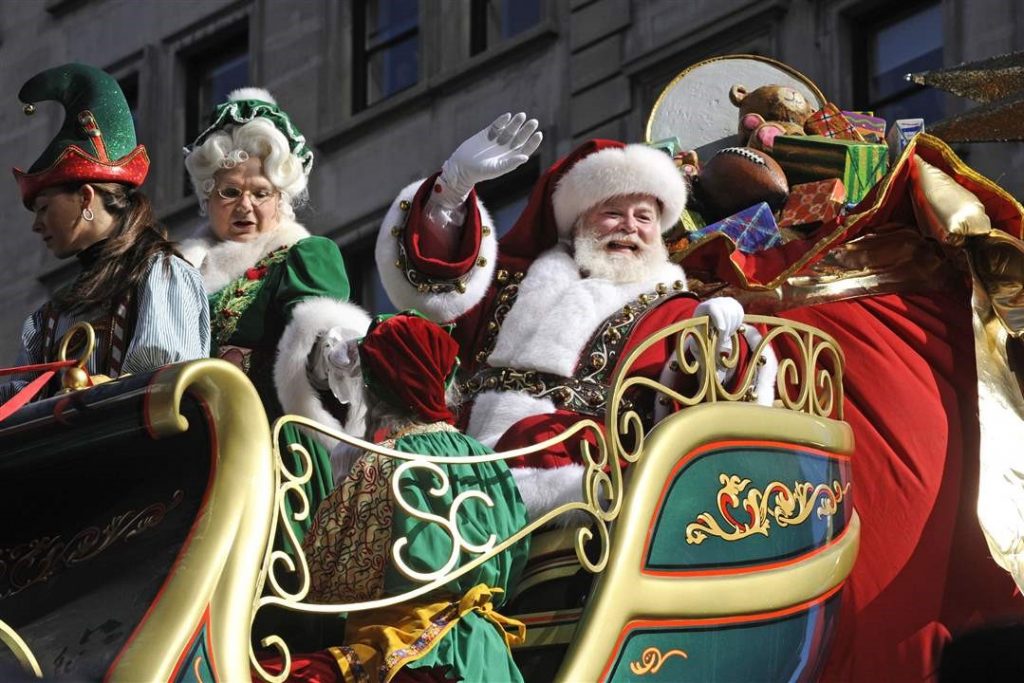
Some have even gotten so disturbed by the increasing popularization of the non-sacred elements of the Christmas season that they’ve stopped decorating Christmas trees and opted out of churches that give a place to Santa Claus and secular ‘Christmas’ entertainment. They’ve become so fed up with the modern paganization of Christmas in our society that they’ve stopped participating in Christmas celebrations, thinking of the possibility that some holiday traditions might have their roots in pagan customs. Their sincere hearts want to please God, so they’ve even given up on the idea of trying to “keep Christ in Christmas.” I certainly respect these sentiments, but as with so many things… especially the controversies of our generation… there’s nothing to be gained by allowing a lack of knowledge to destroy our family’s delight with the celebration of our Savior’s birth. The solution to the controversy… like with other controversies… is taking the time to be like the Bereans in the New Testament book of Acts (Acts 17:11) and “test all things” (1 Thes 5:21), searching the Scriptures and digging into history to see what’s true.
Above all… as believers… we must exemplify speaking only the truth in all our conversations.
Eph 4:25 Therefore, putting away lying, “Let each one of you speak truth with his neighbor,” for we are members of one another.
Zec 8:16 These are the things you shall do: Speak each man the truth to his neighbor;
Give judgment in your gates for truth, justice, and peace;
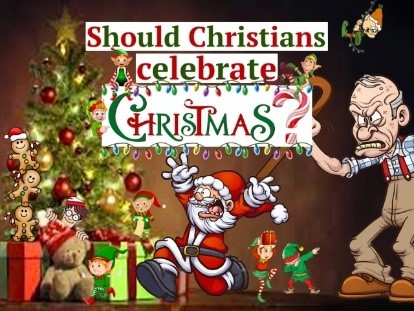
So, does the Bible offer any insight into whether or not Christians should celebrate Christmas? To many, it would seem silly to even ask that question. After all, Christmas commemorates the birth of the Messiah, Yeshua (Jesus)! Why wouldn’t we as Christians celebrate it? But your family members might be surprised to discover that Christians have been debating whether or not to celebrate Christmas for centuries. For instance, the Pilgrims and Puritans actually banned the celebration of Christmas in the seventeenth century. And for many years there has been controversy, even in some Protestant denominations, regarding how Christmas should be observed. A growing number of Christians today are opting out of this beloved holiday for a variety of reasons. Let’s take a closer look at Christmas and ask ourselves, “What place should this holiday have in our lives as believers?”
Christians should absolutely celebrate the birth of Christ. And we obviously don’t need Christmas trees, elves, or decorations to do that. Celebrating the birth of Yeshua our Messiah isn’t dependent upon a formal holy-day/holiday. But… that doesn’t mean that God is against holidays, or even traditional symbols for that matter. Quite the opposite! We are never taught in the Bible to celebrate Christmas, but God does tell His set-apart… Holy… people to celebrate several God-ordained holidays every year forever (see Leviticus 23). And what’s amazing about those biblical holidays is that they’re all about the Messiah. We’ll get to that later… but for now… did you ever wonder…
When did Christians start celebrating December 25th as the anniversary of Christ’s birth and why?
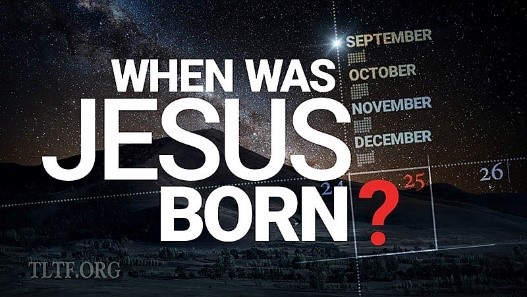
The fact that historians don’t record the actual date of Jesus’ birth should come as no surprise to many people. Ancient people didn’t record or celebrate birthdays of common folks, like they did the birthdays of kings. The first official record in Rome of Christmas being celebrated on December 25th doesn’t appear until the Year 336. That’s 300 years after the death of Christ. There’s evidence that Christians celebrated Christ’s birth as early as the late 2nd century, but on different dates and in a variety of places. The eastern Orthodox church has long celebrated Christmas on January 7th. It wasn’t until Imperial Rome decreed December 25th the official date of Christmas in the mid-4th century, that the entire Western Church celebrated on that same date. That’s why the prevailing theory for many years was that the date for Christmas was chosen by Christians as a way to replace pagan holidays in an effort to evangelize pagans with the gospel. However, there’s a problem with that idea.
In around AD 202, Saint Hippolytus of Rome (c. AD 170-235) wrote, in a commentary on Daniel, that the celebration of Christmas was in fact December 25th. In 221 the Christian traveler Julius Africanus (c. AD 160–240) wrote that Jesus was conceived on March 25th, nine months before December 25th. Over the course of the third century the observance of Christmas on the 25th grew and became largely uncontested by the early 4th century. What’s interesting is that the celebration of the Sun God on December 25th, wasn’t instituted by the Roman Emperor Aurelian until the Year 274! This is well after Christians had been using the 25th for their own celebration. And why did they do that?
There was a commonly held belief in the early church, before Constantine became Rome’s emperor, that Jesus was conceived and died on the same date, that his incarnation represented perfect unity, celebrating creation and re-creation on the same day. They believed his death happened on March 25th, so, if His conception also happened on March 25th, calculating 9 months later, would put his birth on December 25th. Were they right? Nobody knows for sure. But one thing is obvious. The date on the calendar, celebrated by the earliest Christians, even a hundred years before the end of their official Imperial persecutions by pagan Rome, was December 25.
Some believe the Roman calendar date of December 25th was the Feast of Sol Invictus, the birthday of the Unconquered Sun. Actually, before Constantine, there is no record of a pagan holiday on December 25th. The week-long festival of Saturnalia, a commemoration of the passing of the winter solstice, began on the 17th for three days. That’s when the days begin to get longer and increasing daylight replaces the darkness of winter. For pagan Romans, it was a time of gift-giving, constant wild partying, and lewd dancing. Christians of that time could easily see redemptive parallels between these pagan feasts and the worship of their own God, Jesus, who was described as the Rising Sun (Luke 1:78) and the light in the darkness (John 1:5). But there’s no evidence that Christians ever tried to replace or usurp the pagan feasts. Historical records from that period of Roman history suggest quite the opposite. When Constantine began to institute Christian holy-days in the Roman empire, it is plausible that the pagan culture of the era co-opted the date of the 25th that Christians had already been celebrating as the birthday of Christ, for over a hundred years.
Do the traditions of Christmas have their roots in pagan origins?
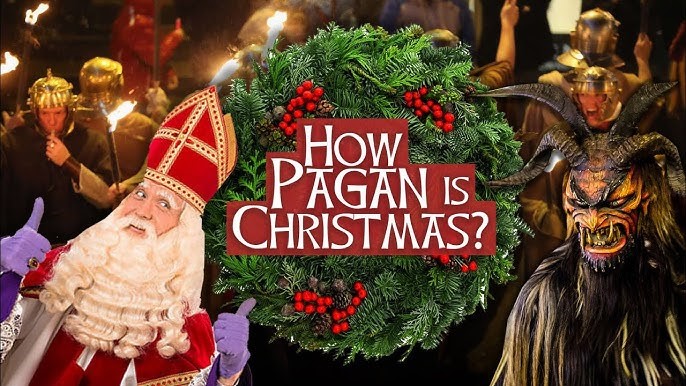
One of the many challenges people have when they begin to question whether or not they should continue celebrating Christmas in our modern culture is the claim that Christmas has pagan origins. Is there proof that this is true? The answer to that question is a lot more complex than most people realize. When you study what historians say about this, you’ll discover a lot of theories and assumptions. Christmas symbols like mistletoe, Christmas trees, yule logs, and fireside stockings — were supposedly incorporated into the Christmas holiday from customs associated with various pagan holidays that were celebrated around the same time. It’s believed by some that the leaders of the governmentally instituted Roman Church established Christmas Day as a substitute for pagan celebrations like Saturnalia, but rather than completely replacing the pagan festivals, some of the customs were adopted into Christmas and reinterpreted to have Christian meaning. It’s important to recognize that significant historical research has shown credible evidence that has disputed these popular claims about the ancient pagan origins of certain Christmas customs, but there’s no doubt that the culture of every generation is in the middle of a constant tug-of-war between God’s Biblical standards and the anti-Christ influences of pure evil.
What’s particularly worth noting is that all Christ’s followers of the first 300 years of His Ekklesia had no widespread thought of celebrating a special holy day … holiday … for the birth of Jesus. Of course, they didn’t celebrate family birthdays either. However, they did celebrate what the Bible calls the Feast of Dedication (John 10:22) or the Festival of Lights, which Jesus actually did celebrate. We call it Hanukkah.
Yule Log burning
The tradition of burning a Yule log dates back to ancient pre-Christian times in Northern Europe, particularly in Scandinavia and Germany. The word “Yule” comes from the Old Norse word “jól,” referring to the winter solstice festivals. The Yule log was a key part of those celebrations, symbolizing the hearth and the life-sustaining fire within the home.
In Medieval Europe the tradition was adopted by people of Germany, England, and France. The first recorded mention of a “Christmas Log” was in a poem in 1648 by Englishman, Robert Herrick. The term “Yule Log” was first documented in a book of common English customs written by John Aubrey in 1686.
There’s no written evidence that Christmas was ever a Christianized version of the ancient pagan custom of Yule. The name was simply applied to the medieval winter practice of burning a large log to warm their homes in the dead of winter at the time of medieval Christmas celebrations.
Mistletoe
The tradition of kissing under the mistletoe has been associated with Christmas as far back as the times of George Washington and America’s founding generation. It appears to have begun with the servant class of England, but we have no clear knowledge how the custom began. Mistletoe was already being used as a Christmastime decoration in English homes, as mentioned by authors William Coles and Robert Herrick in the 17th century, but prior to that, we only have guesswork. No evidence suggests the tradition began with a pagan custom. Pliny the elder wrote observations about the mistletoe plant in his Natural History, completed in AD 70.
Nativity Scenes
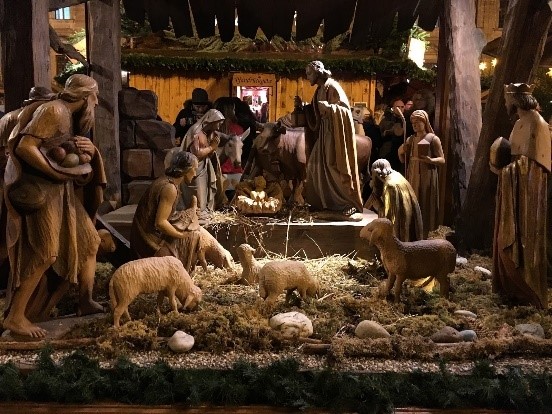
Nativity scenes are a popular Christmas tradition, set up in churches and public places to remember the birth of Jesus. Some have suggested they were used as Christian attempts to mimic pagan idols in pagan sacred spaces, but there’s no evidence to support such a connection. The first nativity was set up by St Francis of Assisi in AD 1223 but not in celebration of the Christmas holy-day. His followers continued the tradition and it became a common Christmas decoration soon after, but never was associated with idol worship.
Gift giving
The giving of gifts has become a major theme of Christmas in modern Christian cultures, but it was never connected to Christmas until the 1840s, when it replaced an older custom of gift-giving between adults on New Years Day in England and America. Children of that era were given gifts on December 6th, the feast day of Saint Nicolas, who was the European patron saint of children. Saint Nicolas customs were also moved to December 25th to make Christmas day more family oriented. Some have made accusations that this custom came from pagan traditions, but there’s no historical evidence to support such a theory. Gift giving is a human custom, spanning across all cultures for many reasons. Assuming the Christmas tradition of gift-giving stems from paganism is as ridiculous as suggesting that having a family meal together comes from paganism because pagans like to have meals together.
Stockings hung by the warming hearth fire
The act of hanging up a large sock and filling it with candy and small gifts is a peculiar tradition. No one knows for sure how it originated, but the Victorian era poem by Clement C. Moore, “A Visit from Saint Nicholas,” mentioned the curious custom. It’s commonly known as “Twas the Night Before Christmas.” Families in some parts of Europe before the 19th century had the tradition of their children putting out their shoes, instead of socks, for Saint Nicholas to fill with gifts. According to one legend, the 4th Century Christian martyr, Saint Nicholas, the son of a wealthy merchant, took pity on a poor man facing the fate of having to sell his three daughters into slavery. He is said to have secretly tossed three bags of gold coins through the father’s open window in the middle of the night. One of the bags landed in a stocking hung out to dry over the fireplace. So, now you know the source of the tradition of giving gold-foil-wrapped chocolates dropped inside the stockings of children, hung over the fireplace on Christmas eve.
Christmas trees
Christmas trees are the universal symbol of Christmas. Nothing besides Saint Francis’ creche’ nativity scene pictures modern people’s idea of Christmas like a decorated evergreen tree with presents under it. Historians can’t give a strong conclusion on where the tradition began. Some believe the decorated tree connects with ancient paganism but no reference exists in any pagan source connecting a decorated tree with Saturnalia, Yule or any pagan winter festival. The first historical reference comes from a written local ordinance in Alsace, France in 1561, restricting the size and number of Christmas trees one could have. The first depiction of a decorated tree also comes from Alsace in 1576, where a sculpture of one was found on the wall of a private home.
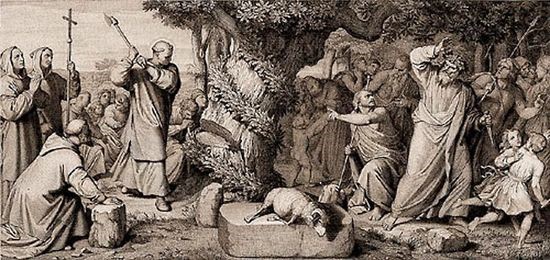
Many believe that Germany is where the Christmas tree tradition had its roots. About AD 723 the English missionary St. Boniface encountered pagans preparing a sacrifice at an oak tree dedicated to their pagan god, Thor (Donar). Boniface took an ax to the tree, and, when he wasn’t struck down by their pagan god, Boniface proclaimed to the awed pagans that a nearby evergreen was their “holy tree.” Other sources report that a fir tree grew on the site of the fallen oak.
Whether that’s true or not, evergreen trees became part of Christian decorations in medieval Germany, when “paradise trees” began appearing there. They were meant to represent the Garden of Eden, decorated with apples, and displayed in homes on December 24, the Catholic feast day of Adam and Eve. In the 16th century, paradise trees evolved into Christmas trees when Martin Luther famously hung lighted candles on an evergreen tree. By the 19th century, Christmas trees were a firmly established tradition in Germany.
Santa Claus
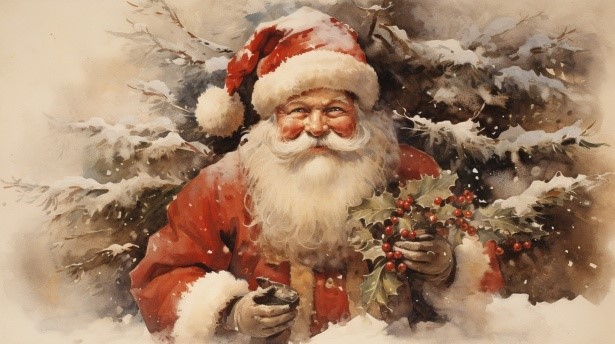
Santa Claus is probably the one Christmas custom that gets the worst criticism for being of pagan origin. But the evidence strongly indicates that Saint Nik Claus evolved from the real history of a real man, named Nicholas, who was a Christian martyr, who was canonized as a saint by the Catholic Church, and was, in the last two centuries, blended with various European pagan characters. Listen to the bonus segment of today’s show at Reclaim Your Legacy.com to hear historian Bill Federer give his concise overview of the real story of Santa Claus.
Did you ever learn, in your growing up walk with the Lord, that God does tell us in the Bible to celebrate several holy days… from which we get the word “holidays” (see Leviticus 23)? And what’s amazing about these biblical holidays is that they’re all “appointed times” from our God, YHWH, for all His people who are called Israel, even the New Creation who are called the Israel of God (Gal. 6:16) and the children of the promise who are regarded as true descendants of Abraham (Rom 9:6). And these holidays are all about His Messiah.
- Passover/Unleavened Bread – they symbolize Yeshua’s death (1 Corinthians 5:7-8).
- Firstfruits – it symbolizes Yeshua’s resurrection (1 Corinthians 15:20).
- Shavuot (more commonly known as Pentecost) – it’s the day on which God poured out the Holy Spirit on the disciples (Acts 2:1-4).
- Yom Teruah/Rosh HaShanah (Day of Trumpets) – it points to Yeshua’s Second Coming, which occurs at the sound of the trumpet (see Matthew 24:31; 1 Corinthians 15:52; 1 Thessalonians 4:16; Revelation 11:15).
- Yom Kippur (Day of Atonement) – it points to God’s final judgment of the world.
- Sukkot (Feast of Tabernacles) – it points to the ingathering of the nations, the wedding supper of the Lamb, and the future dwelling of God on earth (Zechariah 14:16-19, Revelation 7:9; 21:2).
Truly, if we want a holiday to celebrate the gift of Messiah, we already have seven that come straight out of the Bible. In addition to pointing to future prophetic events, Sukkot, or Tabernacles, is also the perfect opportunity to celebrate Yeshua’s birth. Remember how Jesus’ apostle John opened his remarkable historic gospel record? He wrote: “The Word became flesh, and tabernacled among us…” He dwelt with us… He lived with us… “and we beheld His glory, glory as of the only begotten from the Father, full of grace and truth.” (John 1:14). No wonder the holiday celebration of Tabernacles is still celebrated among many messianic believers, looking forward to Messiah’s return to forever dwell among all His people.
What Would Yeshua Do?
Yeshua and the apostles never celebrated Christmas—a holiday invented centuries later—but they did celebrate the biblical holy days. Indeed, the holy days of the Bible, in addition to the weekly Sabbath day, continued as cornerstones of the apostles’ faith… long after the resurrection of Yeshua (Acts 2:1; 18:21; 20:16; Acts 27:9). The apostle Paul even instructed Jewish and Gentile Christians at the church of Corinth to observe Passover (1 Corinthians 5:7-8).
In addition to the holy days in Leviticus 23, Yeshua celebrated another holiday—one that occurs right around the “Christmas season.” The Gospel of John records that Yeshua went to the Temple for the Feast of Dedication [that’s Hanukkah]:
At that time the Feast of Dedication took place at Jerusalem. It was winter, and Jesus was walking in the temple, in the colonnade of Solomon. (John 10:22-23)
Hanukkah is an amazing celebration commemorating the rededication of the Second Temple in Jerusalem. As believers, we can follow Yeshua’s example by celebrating this feast. During Hanukkah, we remember not only the victory of the Maccabees in 164 BC, but also the victory we have in our Messiah. Indeed, just as God worked through a small group of Jewish believers to take back the Temple of God and defeat the forces of evil in their day, Yeshua took back our personal “temples” from the enemy and dedicated us to God.
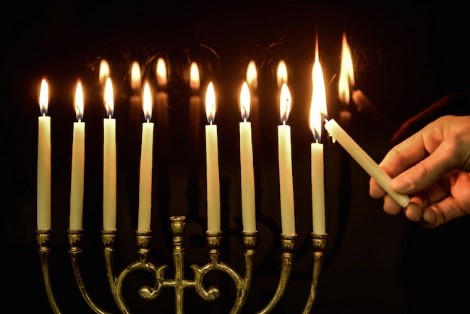
The Hanukkah season is all about a righteous group of believers who refused to turn away from God’s ways—a message desperately needed in our modern culture of compromise! Hanukkah rarely falls on December 25th like it does in 2024.
When it comes to holidays that celebrate the advent of our Messiah, New Testament believers sure have lots of options. And unlike Christmas, these holidays actually have a basis in the Bible and the traditions of the apostles.
After studying what scholars say about the origins and the modern features of Christmas, we can understand how one might be persuaded that the holiday is too corrupted with questionable pagan customs to continue celebrating it. However, in our own private celebrations of Christmas, we can certainly make deliberate constructive efforts to reform the way we celebrate the season. For many families, it’s not possible to ditch long-practiced customs. In those cases, creative and prayerful care can be taken to rebuild God-honoring family customs, like singing real Christ-focused carols for residents of senior care homes, or eliminating the emphasis on receiving gifts in exchange for the practice of giving gifts to those who are truly needy and appreciative in our communities.
God commands us not to imitate the ways of pagans in our worship of Him (Deuteronomy 12:29-32; 18:9-12; 20:17-18). There’s nothing in the Bible prohibiting God’s people from establishing traditions that may or may not have any particular symbolic meaning. The one thing the Bible does command is the use of godly discretion. It says,
Ecc 9:10 “Whatever your hand finds to do, do it with your might; for there is no work or device or knowledge or wisdom in the grave where you are going.”
And…
Col 3:17 & 23 “And whatever you do in word or deed, do all in the name of the Lord Jesus, giving thanks to God the Father through Him. …And whatever you do, do it heartily, as to the Lord and not to men,”
Bonus Segment
My friend, Christian historian Bill Federer, wrote a fascinating book on the real history of Santa Claus. Let’s listen to a little interview he did with host, Terry Meusen, on the 700 Club about Santa.

Believers and skeptics have many questions about traditions and historical customs regarding Christmas and the holy days described in the Bible. If you want to explore some more fascinating insights, I’ve included a bonus segment in the transcript for today’s show at Reclaim Your Legacy dot com. Put the word Christmas in the search bar at the top of the page. Tap enter and you should pull up today’s show called Christmas celebrations Controversy. What you discover there can be helpful catalysts in your conversations with others to encourage them to dig into Scripture like a Berean to find the truth that will set them free from the distracting deceptions that steal their joy at this cherished season of the year. Let’s all do our part to lead those whom the Lord has placed in our lives to discover “the love of Christ which passes knowledge; that they may be filled with all the fullness of God” (Eph 3:19).
Cultish: Debunking Pagan Holiday Myths w/ Michael Jones Apologia Studios https://youtu.be/g51M-qzKA9A?si=v4svFK4Aj8Twuwic
In this episode, Jeremiah and Andrew, of the program called “Cultish” in the Apologia Studios ministries, have a lively discussion with Michael Jones of Inspiring Philosophy. They answer a lot of pagan myth objections to Christianity. How do you answer someone who claims that Christianity has stolen from paganism? Do any Christian Celebrated Holidays have Pagan origins? This is very helpful to consider Biblical concerns regarding many holidays including Halloween.
Should Christians Celebrate Hanukkah with Dr Jay Christianson

Challenging the Culture with truth https://youtu.be/CZfm4u6udE4?si=6fb4vj8XCJ_hLh1f
In John 10:22, Jesus was in the temple at the Festival of Lights, or Hanukkah. The implication is that Jesus, as a faithful Jew, may likely have celebrated this Feast of Dedication in the temple of His day. Dr, Jay Christianson, of HighBeam Ministry, asks the question, “Should Christians celebrate Hanukkah?” His arguments on this issue are certainly compelling, if not convincing. I like how his historically informed conversation paints a very helpful picture for us to see how the 10th chapter of John is very relevantly composed about Jesus’ dedication to His mission as the true Messiah of God.
Hanukkah is Also Known as the Feast of Dedication or the Feast of Lights
- The Feast of Dedication, which was once also called the Feast of the Maccabees, was an eight-day winter festival celebrated by the Jews in the month of December or sometimes late November, depending on when it fell in the lunisolar Jewish calendar.
- Originally instituted as a feast in the manner of Sukkot (Feast of Booths), it does not come with the corresponding obligations, and is therefore a relatively minor holiday in strictly religious terms. Nevertheless, Hanukkah has attained major cultural significance in North America and elsewhere, especially among secular Jews, due to often occurring around the same time as the festive season of Christmas. The name ‘Hanukkah’ derives from the Hebrew verb ‘חנך’, meaning ‘to dedicate’. On Hanukkah, the Maccabean Jews regained control of Jerusalem and rededicated their Temple.”
The Very Recent Origins of the Christmas Tree ReligionForBreakfast https://youtu.be/m41KXS-LWsY?si=5z_lHlDpLmFzXnd1
It’s often alleged that the Christmas tree originated from some sort of pagan practice. But the evidence points to a much later date during the Medieval period in Europe. This well-researched historical report brings needed truthful perspective to the controversy with which we all have to process in our search for the reality that honors our Creator.
Britannica reports… https://www.britannica.com/story/how-did-the-tradition-of-christmas-trees-start
Origin of Christmas Trees Tradition
The tradition of decorating Christmas trees originated in 16th-century Germany, where evergreen trees were brought into homes during the winter solstice to symbolize life and hope during the cold and dark months. The custom was popularized by German royalty, including Queen Charlotte, who introduced it to the British royal family in 1800.
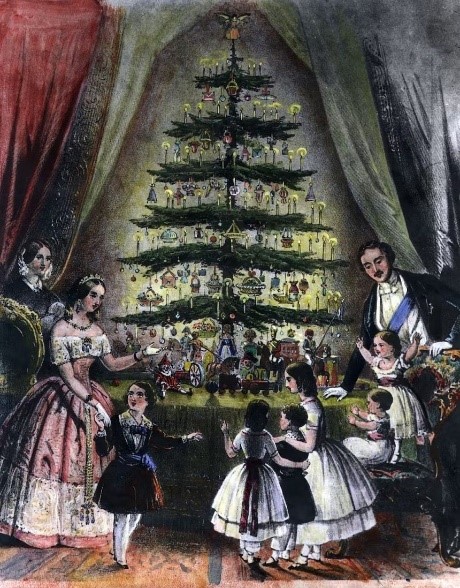
Queen Victoria and her German husband Prince Albert further popularized the tradition in Britain during the 19th century. A drawing of the royal family around a decorated Christmas tree was published in the Illustrated London News in 1848, and soon the custom spread to the middle class and beyond.
Before the Victorian era, Christmas trees were not a widespread tradition in Britain. The English Puritans, who banned Christmas celebrations in the 17th century, did not decorate trees as part of their holiday observances.
In Germany, the tradition of decorating Christmas trees was already well-established by the 16th century. The evergreen fir tree was seen as a symbol of life and hope during the cold and dark winter months. The tradition was influenced by pre-Christian winter festivals and the ancient Germanic practice of bringing evergreen branches into homes to symbolize the continuation of life and fertility.
Over time, the tradition of decorating Christmas trees evolved and spread to other countries, including the United States, where it became a popular custom in the mid-19th century. Today, decorating Christmas trees is a beloved tradition around the world, with many families creating their own unique and festive displays.
German settlers also introduced Christmas trees in the United States, though the custom was not initially embraced. Many Puritans opposed the holiday because of its pagan roots, and officials of the Massachusetts Bay Colony actually outlawed celebrating Christmas. Their dislike of the holiday was such that they even closed their churches on December 25. It wasn’t until the 1820s that Christmas began gaining popularity in America, and the country’s first Christmas tree reportedly was displayed in the 1830s. The Christmas tree’s popularity spread with the help of the influential magazine Godey’s Lady’s Book, which in 1850 published the 1848 illustration of the British royals, though the depiction of the family was altered to appear American. This and other efforts helped make Christmas trees popular in the United States by the 1870s.

Great Article bro, jembut kuda daftar sekarang
great articlengentot nungging bokep